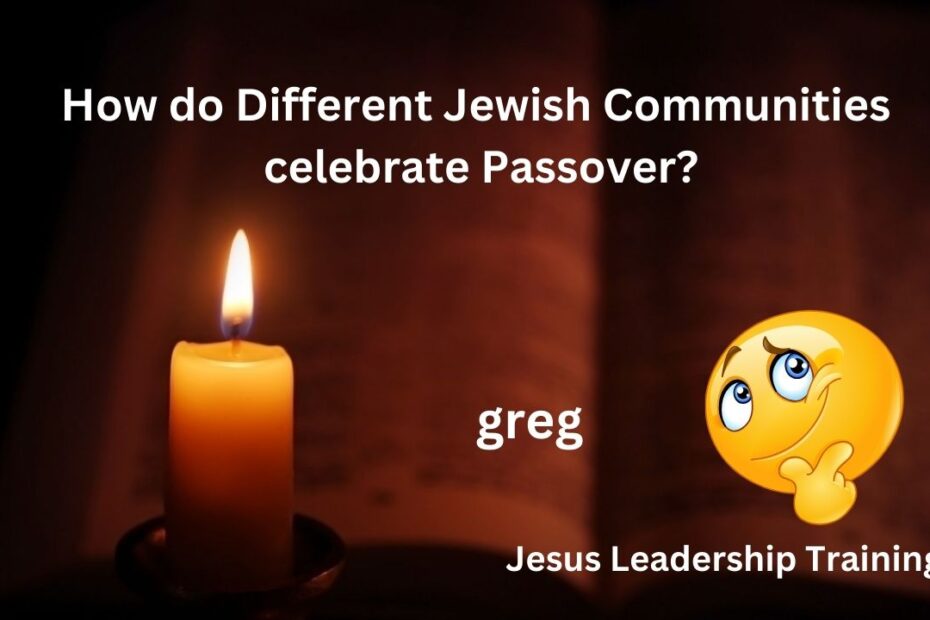Passover Celebration by Jewish Communities Around the World:
1. Overview:
Passover, or Pesach in Hebrew, is a significant festival in the Jewish religion that commemorates the Israelites’ exodus from Egypt, as described in the Bible. It is celebrated for seven or eight days (depending on the region), starting on the 15th day of the Hebrew month of Nisan, usually in April.
2. How Passover is Celebrated:
Different Jewish communities around the world have unique traditions for celebrating Passover, but some core practices are common:
- Seder Meal: The highlight of Passover is the Seder, a festive meal that includes reading the Haggadah, which tells the story of the exodus. Foods served have symbolic meanings, such as matzah (unleavened bread), symbolizing the haste with which the Israelites left Egypt that they could not wait for their bread to rise.
- Eating Matzah: Throughout the festival, Jews eat matzah instead of leavened bread to remember the rapid departure from Egypt.
- Bitter Herbs: Bitter herbs, typically horseradish, are eaten to remind of the bitterness of slavery.
3. Variations in Traditions:
- Ashkenazi Jews (Eastern Europe): They might have a custom called “Bedikat Chametz,” where they search their homes for any bread or leavened products to remove before the holiday begins.
- Sephardic Jews (Spain and Portugal): Their Seder plates might include items like rice and legumes, which Ashkenazi Jews traditionally do not eat during Passover.
- Ethiopian Jews: They break all their dishes before Passover and make new ones to ensure that there is no leavened bread contamination.
- Yemenite Jews: They have a tradition of baking soft matzah called “lachma avdei” which translates to “bread of the slaves.”
4. Biblical Reference:
The story of Passover is found in the Book of Exodus, primarily in chapters 12 to 14. One of the key verses is Exodus 12:14: “This day shall be for you a memorial day, and you shall keep it as a feast to the Lord; throughout your generations, as a statute forever, you shall keep it as a feast.”
5. Historical Context:
Passover has been celebrated by Jewish communities for thousands of years, dating back to biblical times. It is one of the oldest continuously observed religious ceremonies in the world.
6. Takeaways:
- Cultural Diversity: Passover showcases the diversity within the Jewish community, as different groups have developed their own unique traditions based on their historical and geographical backgrounds.
- Freedom and Reflection: It is a time for Jews to reflect on the theme of freedom and to appreciate the struggles of their ancestors.
- Community and Family: It is a family-centered festival, emphasizing the importance of gathering with loved ones and passing on traditions to future generations.
This celebration teaches lessons of resilience, freedom, and community, central to Jewish identity and history.


